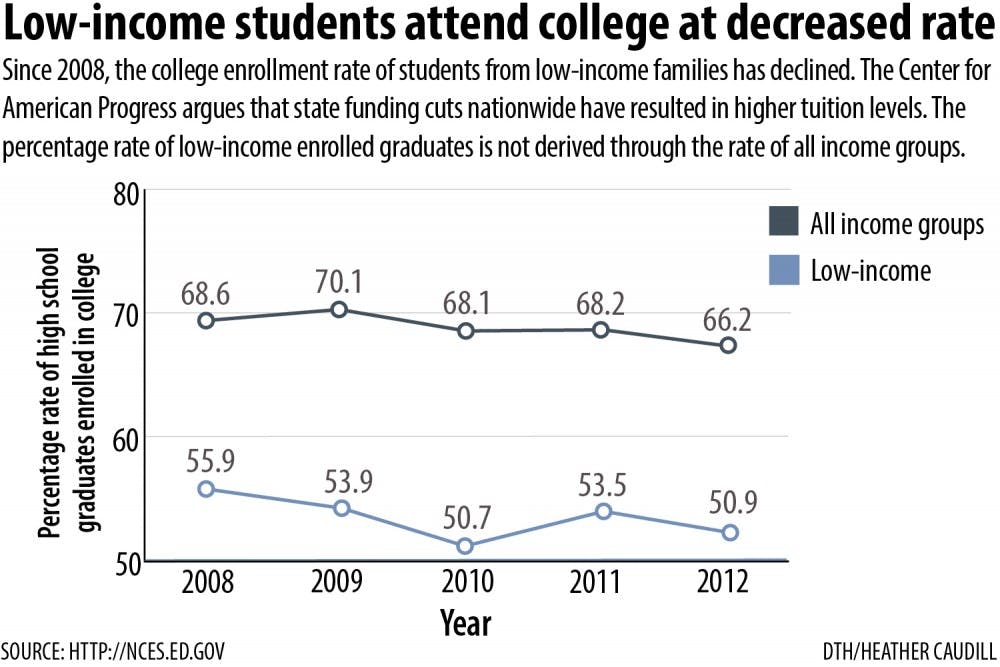The Center for American Progress found that 38 states cut the amount of spending per student during the fiscal period of 2008 to 2012, said Elizabeth Baylor, associate director of postsecondary education at the center.
The two- and four-year college attendance rate of low-income students dropped from 55.9 percent in 2008 to 50.9 percent in 2012. The state has cut universities’ funds by about 5 percent, according to the study.
Shirley Ort, associate provost and director of UNC’s Office of Scholarships and Student Aid, said in an email that cuts have had an impact on student financial aid.
“Though we have experienced some loss of state grant funding in North Carolina, the state has worked hard to limit these cuts,” Ort said.
She said UNC has one of the best need-based aid policies among all public universities in the country. The University practices need-blind admission, which is the method of admitting students without first looking at their ability to pay.



